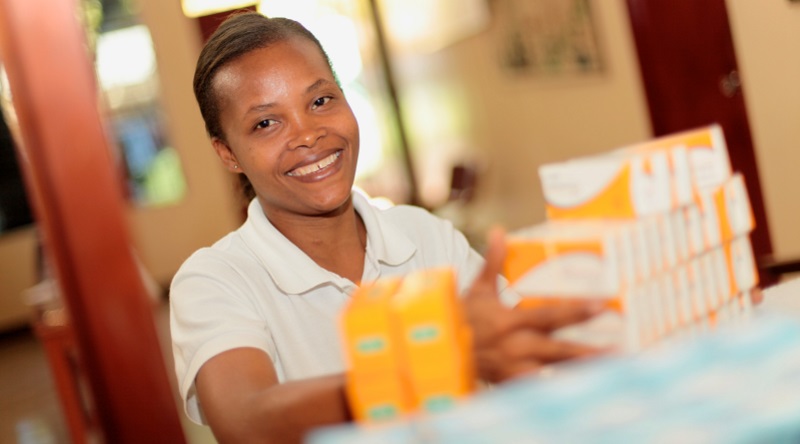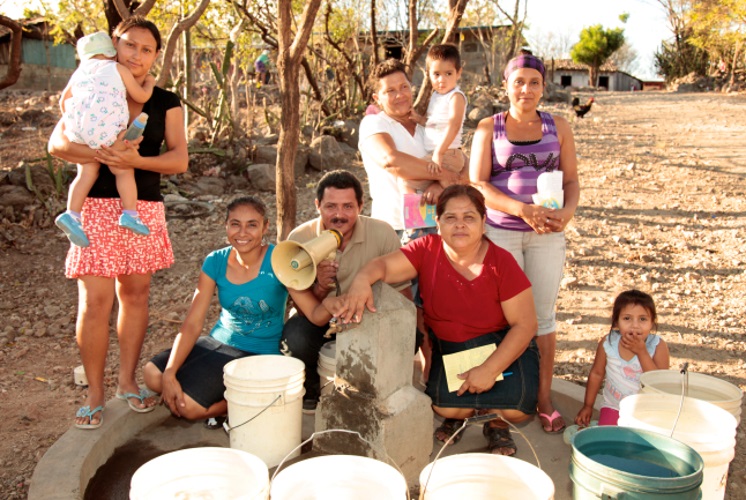Legacies: giving hope and help for generations to come
CAFOD supporter John van den Bosch visited our projects in Nicaragua to see how gifts in wills, like the one left by his mother, are having a huge impact.

My mother, Marjorie, was a dedicated CAFOD supporter. When she died, I wasn’t surprised to learn that, as well as providing for her friends and family, she’d also remembered CAFOD in her will. My niece Kate and I were given the opportunity to visit CAFOD projects in Nicaragua to see how legacies like my mother’s are put to use.
Watch our short video of John and Kate’s trip to Nicaragua
As one of my mother’s executors, and a CAFOD supporter myself, I was intrigued. I suppose you could call me a “curious sceptic”. But the work I saw in Nicaragua and the remarkable people I met there gave me a richer understanding and appreciation of what CAFOD does.
Nicaragua: one of Latin America’s poorest countries
Nicaragua is a stunning place, but it’s also one of the poorest countries in Latin America. The problem is particularly bad in rural communities, where around 70 per cent of people struggle to cover their basic needs – things we often take for granted, like food, water, healthcare, education and decent housing.
We visited CAFOD’s partner, The John the XXIII Social Action Institute, to see the impact they are having on thousands of people’s lives. We met communities who have benefitted in so many different ways – from access to clean drinking water and decent housing, to teacher training and community pharmacies providing affordable medicines.
Building clinics and confidence
But the project that really stood out to me – and the one that I think my mother, a trained nurse, would have particularly loved – was the community health clinic being built in the tiny hillside village of Puntizuela.
For years, people there relied on monthly visits from a nurse. If someone fell ill between visits, they had to walk or be carried to the nearest town, which is three hours away along a steep and rocky road often blocked by landslides.
The John XXIII Institute provided building materials, tools and a small team of professional builders to share their skills. It’s been a real team effort; one volunteer told us that 98% of the local people are involved. That’s how much this means to families in the area. As they work, volunteers gain new skills and self esteem which will benefit their communities for years to come.

I’ve heard many times that CAFOD works to help people help themselves, but I didn’t understand the true meaning of this until I experienced it. Poverty isn’t just back-breaking; it can break your spirit too. But time and time again we met people who told us that, through working with CAFOD and John XXIII, they’ve finally learnt to value themselves.
During our time in Nicaragua, we were impressed by what we saw and heard; but even more by what we felt. The work being done had involved and galvanised the people of the villages. They took ownership of the results, gained confidence and were inspired to do more to improve their lives.
Find out more about how you can leave a legacy of faith, hope and love to the world’s poorest people
Putting faith into action
My mother would have been delighted to see how gifts like hers are being used so wonderfully. And I found it moving to know that her spirit and values live on through the projects we saw.
My mother showed me that it’s not enough to feel sorry for people who are less fortunate than ourselves: we have to put our faith into action and help our brothers and sisters. And we can help. In communities like Puntizuela, even the smallest legacy can make a big difference. I’ve seen it for myself; and that’s why I’ll be leaving a gift to CAFOD in my will.
By leaving a legacy to a charity that knows how to use it well, each of us can carry on being part of their good work beyond our own lifespan; work filled with our values and a Christian spirit. I truly believe leaving a legacy is a wonderful thing to do.
If you’d like to find out more about leaving a gift to CAFOD in your will, we’d love to hear from you. Call us for a chat on 020 7095 5370 or email us at legacy@cafod.org.uk